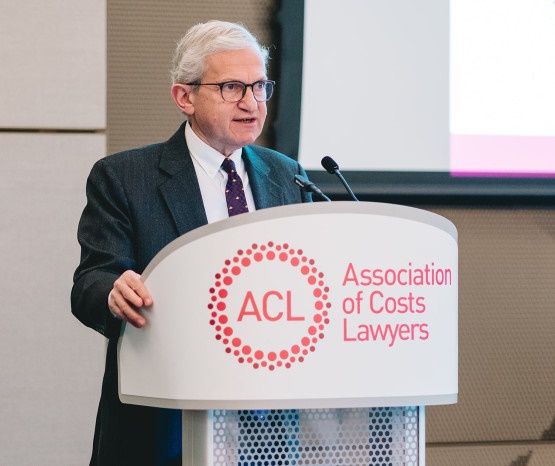4 July 2022

Sir Geoffrey Vos
The ACL has urged the legal profession to engage with a major review of key costs issues instituted by the Master of the Rolls, which issued a consultation paper last week.
Sir Geoffrey Vos first indicated he would take forward this review when publishing the new guideline hourly rates last August and set out his intentions in his speech to November’s ACL National Conference.
The Civil Justice Council (CJC) costs working group is headed by Lord Justice Birss, deputy head of civil justice, and features two Costs Lawyers among its members: ACL chair Jack Ridgway, representing Costs Lawyers, and Paul Seddon, representing the Legal Aid Practitioners Group.
The group is focusing on four areas: costs budgeting, guideline hourly rates (GHR), costs under pre-action protocols/portals and the digital justice system, and the consequences of the extension of fixed recoverable costs (FRC).
The consultation is just seeking views at the moment and does not set out any position on these issues. The purpose is not to propose granular changes either.
“The costs review is intended to be holistic in nature (albeit focusing firmly on the specific areas identified above), acknowledging that while each of these topics is important in itself, their interaction with one another and the wider context of civil justice as a whole, is crucial.”
The paper said that, while this wider context has “many dimensions”, there were three worth highlighting at the outset:
- Digitisation – “The costs system in civil justice must be fit for purpose in a digital justice system. That will include costs incurred in proceedings before the court, and also costs incurred before court proceedings begin”;
- Vulnerability – “The needs of vulnerable court users must always be taken into account”; and
- The economic significance of the civil justice system – “A functioning civil justice system is the bedrock of the economy… Accessible courts promote respect for rights and proportionate dispute resolution, even without the need for parties to go to court. Lengthy delays and excessive cost needlessly magnify the stresses caused by involvement in court proceedings, with knock on effects for society and the economy.”
With the 10-year anniversary of the introduction of costs budgeting approaching next April, “now is an opportune time to review the impact and effectiveness of the rules”, the consultation said.
It acknowledged how views were split among both practitioners and judges. “[Judges] in favour of reform suggest that they often feel they are not equipped to conduct the costs budgeting exercise properly (whether by reason of lack of training, experience or information).
“Further they consider there to be a disparity between budgets approved in London, which are thought to be more generous, and those approved elsewhere.
“Judges in favour of the current rules point out that for courts outside London, costs budgeting is the key (and often only) tool to prevent disproportionate costs in cases at the lower end of the multi-track.”
Among the questions asked was how an early focus on costs could be maintained if costs budgeting were restricted or abolished.
The working group will not review the GHRs themselves; instead it is considering “the purpose and effect of GHRs in the current interlocking landscape” – such as the impact of remote working and hearings – and, if a place for them remains in the future, the mechanism by which they should be reviewed.
